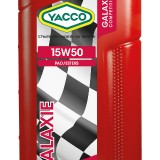Originally Posted By: SR5
Originally Posted By: SonofJoe
Forget MB 229.3. This is another spec that tends to come 'for free' once you have the other stuff in the bag.
What !!
So you make a good (not sneaky) 40 grade SN & A3/B4 and you get MB 229.3 & MB 229.1 for free. So what else do you most likely get for free, and more importantly which OEM's actually mean something ?
What about VW 502 00 / 505 00 or RN 0700 / 0710 or JASO SG+ ?? (These are all the extra specs that Shell Helix HX7 10W-40 semi-synthetic has - which I foolishly assumed meant something).
VW 505 seals could be tricky but the engine performance came for free on any oil, however skanky. VW 502 you had to work for.
JASO specs tended to also come for free.
Can't remember now but I seem to recall that the Renault approvals revolved around glassware tests and that provided you had enough synthetic in the mix, these could be passed.
Just to be clear, with all of these approvals, you do have to actually run & pass the requisite tests and you wouldn't say automatically run JASO friction tests as part of any API/ACEA PCMO program. What I'm saying is if you do run the tests and you've got your basic PCMO properly sorted, chances are the tests will pass first time. Only in that sense do they come 'for free'.
Originally Posted By: SonofJoe
Forget MB 229.3. This is another spec that tends to come 'for free' once you have the other stuff in the bag.
What !!
So you make a good (not sneaky) 40 grade SN & A3/B4 and you get MB 229.3 & MB 229.1 for free. So what else do you most likely get for free, and more importantly which OEM's actually mean something ?
What about VW 502 00 / 505 00 or RN 0700 / 0710 or JASO SG+ ?? (These are all the extra specs that Shell Helix HX7 10W-40 semi-synthetic has - which I foolishly assumed meant something).
VW 505 seals could be tricky but the engine performance came for free on any oil, however skanky. VW 502 you had to work for.
JASO specs tended to also come for free.
Can't remember now but I seem to recall that the Renault approvals revolved around glassware tests and that provided you had enough synthetic in the mix, these could be passed.
Just to be clear, with all of these approvals, you do have to actually run & pass the requisite tests and you wouldn't say automatically run JASO friction tests as part of any API/ACEA PCMO program. What I'm saying is if you do run the tests and you've got your basic PCMO properly sorted, chances are the tests will pass first time. Only in that sense do they come 'for free'.




